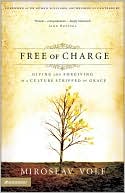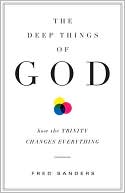Everybody has an angle. It’s not an assumption, like many others, that we are born with, but one we learn by experience. Foucault said that all human beings are on a quest for power. That’s not your typical Sunday School lesson, but if you know anything about yourself and others, you know that he wasn’t far off the truth. Humans love power. We do. We like the power to manipulate, influence, “nudge” others into a path of our liking. And usually that path happens to be to our benefit.
Information is power. When the doctor says, “you really need this surgery,” generally you have no idea whether you really need it, or whether he is just padding his pocket by performing a non-harmful yet unnecessary surgery. He has a power over you in the form of expertise information. Tyrannical totalitarian governments are in the business of information. They keep much of it secret by hijacking the press and media outlets, they ruthlessly extract it with their brutal crews of secret police, and they run countless campaigns of misinformation. Why? Because the more information the more power.
The Angle of information. We all want power, and information is power. Logically, then, the world should thank us when we provide life-changing information like the gospel. However, what often happens is people become very suspicious of your information. And they do it for the simple reason that if you know something they don’t, then you have some power over them. They automatically assume that you are using your power to “nudge” them into a path that benefits you. Everyone has an angle, and the Jesus’ stuff is just your angle. This very logic is why the gospel is so radical, so counter-intuitive. At its heart is power that is used not for personal benefit, but for the benefit of others. It is power sacrificed, power in service. However, people don’t assume that. All they see is Mr. Information trying to sell them a bill of goods to pad his church’s attendance, add to his own level of self-righteousness, and play the admirable role of the hero saving them from so-called eternal peril. Call it blindness, hard-heartedness, or whatever you like, but it is the status quo perception in a broken, power hungry world. Better get used to it.
Living Proof. “Keep your conduct . . . honorable . . . so that they may see your good deeds and glorify God”(1 Peter 2:12). It has often struck me how often NT writers, like Peter here, emphasize Christian living far more than proclaiming the gospel. I doubt that it is their preference for “lifestyle evangelism” over against proclamational evangelism. After all, “how are they to believe in him of whom they have never heard?”(Romans 10:14). Nevertheless, the early church was obviously aware of their need to persuade hearers that their love was genuine. The gospel is power sacrificed, power in service, but until individuals see and experience that power in action, they are not likely to believe in its existence. We must be living proof of the gospel. How is power in service being lived out in your life?
Tuesday, May 4, 2010
Subscribe to:
Post Comments (Atom)









No comments:
Post a Comment